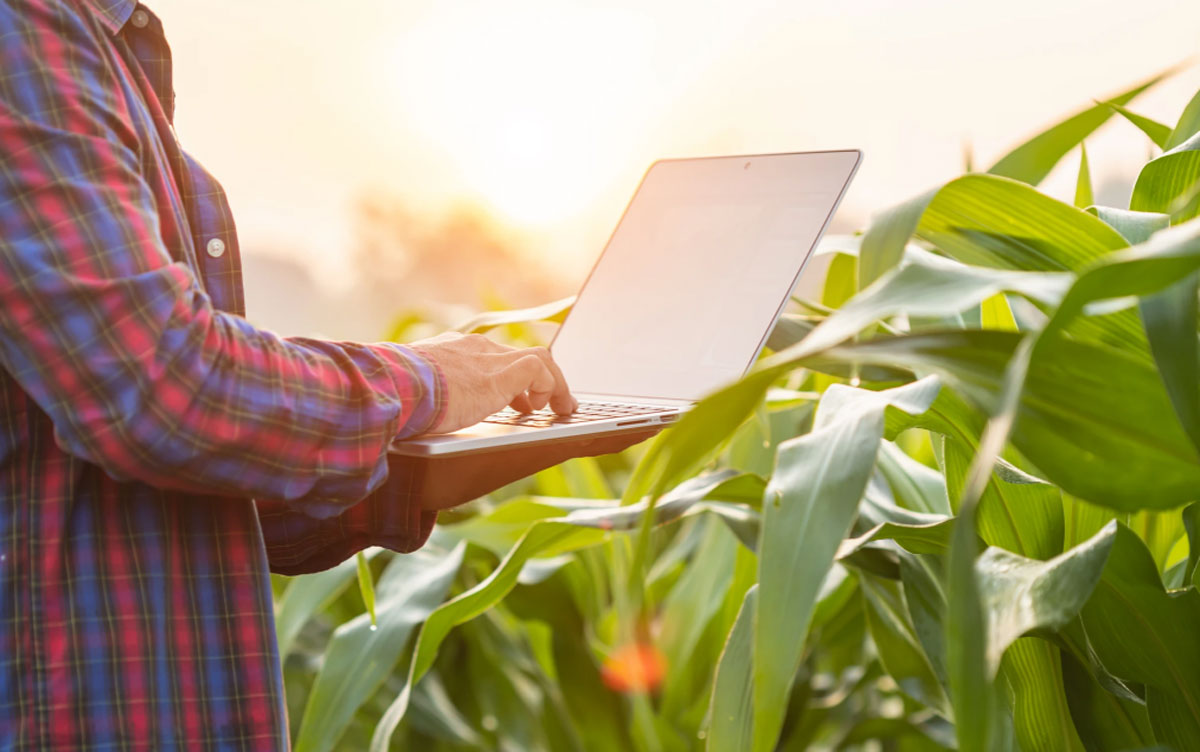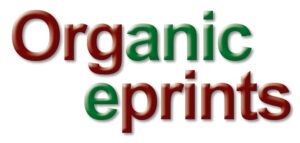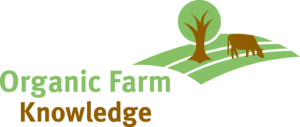
Over the last decades, a lot of research on organic farming and food systems has been carried out, and results from this research have been collected in the two open access databases: Organic Eprints and Organic Farm Knowledge. Today, it seems even more important to be able to have free and open access to organic research to fulfill the objectives of the reformed Common Agricultural Policy (CAP) and to support the ambitious EU policy agendas of the Farm to Fork Strategy and the European Green Deal.
The EU has set targets of reaching at least 25% of the EU’s agricultural land under organic farming and significantly increasing organic aquaculture by 2030. The Horizon Europe project OrganicTargets4EU is supporting the achievement of these targets and knowledge and innovations discovered in the project will be presented in Organic Eprints and Organic Farm Knowledge enriching the knowledge in the two databases.
Organic Eprints –A Research Oriented Knowledge Database
Organic Eprints is an international open-access archive dedicated to research on organic farming and food, and of interest to researchers, advisers, companies, funders, university students, etc. The database celebrated its 20th anniversary last year and currently, there are more than 30,000 Eprints available. Therefore, Organic Eprints offers a great collection of research outputs and has a large outreach, with around 100,000 downloaded Eprints per month. Organic Eprints is used worldwide, although most activity takes place in Europe. The three biggest subject areas amongst uploads are animal husbandry, crop husbandry, and food systems. The user interface is available in English and German; however, user guides are available in multiple languages and Eprints can be uploaded in all languages. Editors make quality control of items from their region and help maintain the archive.
Benefits of Organic Eprints
Some key benefits are that Organic Eprints makes it easy to get an overview of the organic research, which can be filtered by e.g., institution, subject area, project, or conference, making it possible to assess who is working on which subjects. It also makes it easy for authors to reach the organic community. The archive is free and open for all to use, and registered users can deposit their publications from peer-reviewed journals as well as non-peer-reviewed sources, as long as the publications are based on – or related – to research in organic agriculture or food.
Organic Farm Knowledge – A Practical Tool for Farmers and Advisors
The Organic Farm Knowledge platform was initiated in 2015, and provides access to a wide range of tools and resources about organic farming that can help improve production. It also aims to serve as a virtual meeting place for cross-border learning. The platform promotes the exchange of knowledge among farmers, farm advisers, and scientists, with the aim of increasing the productivity, quality and sustainability of organic farming across Europe.
The Toolbox
The core of the Organic Farm Knowledge platform is the Toolbox, which provides access to resources for organic farmers and advisors. The type of these tools ranges from practice abstracts, leaflets, videos, websites, etc. The toolbox offers the possibility for an arbitrary text search as well as displaying tools by theme, language, organization, project, keyword, type, country of origin, and year. The search results can be further sorted by name, year, organization, associated project, and rating. It is expected that Organic Farm Knowledge will become a European platform for exchange amongst farmers and will greatly help to increase the visibility of practical information for farmers.
Fact Box
- Organic Eprints has been developed and operated since 2002 by the International Centre for Research in Organic Food Systems, ICROFS. In 2003 the Research Institute of Organic Agriculture (FiBL) joined the project as its first international partner with editorial responsibilities for the German language region and responsibility for the German language version of Organic Eprints. Additionally, Organic Eprints has national editors, currently in 26 countries, who assist in reviewing new eprints.
- Organic Eprints is maintained by ICROFS, who also set up the first version of the Organic Farm Knowledge Platform in 2016.
- Organic Farm Knowledge is besides OrganicTargets4EU collaborating with several research projects. The following projects have provided or will provide resources to the toolbox: Best4Soil, BioFruitNet, CORE Organic, FAIRshare, FutureEUAqua, Greenresilient, LegumesTranslated, LIVESEED, OK-Net Arable, OK-Net EcoFeed, PPILOW, RELACS, ReMIX, Wikifarmer.
- The Executive board of Organic Farm Knowledge oversees the strategic development of the platform. It defines the quality criteria of tools and secures the maintenance and continuity of the platform. The Executive board consists of FiBL, ICROFS, IFOAM EU, AIAB, CIHEAM Bari, Ecovalia, Living Seeds Sementes Vivas SA, ÖMKi and the Verbund Ökologische Praxisforschung (VÖP).

